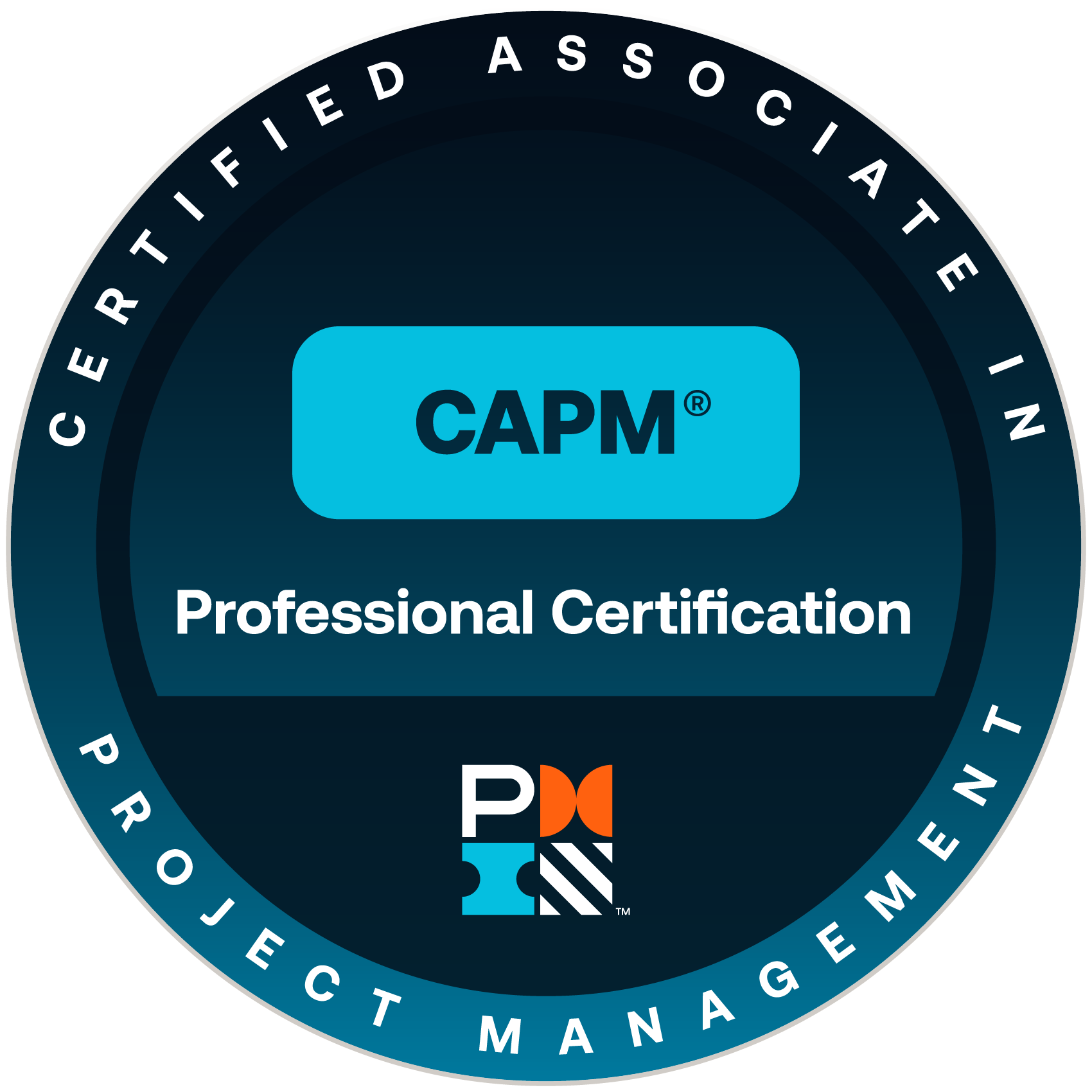CAPM® Certification Program
CAPM® Certification — Build Your Foundation in Project Management
What is CAPM®?
The CAPM is ranked #1 out of "The 9 Most In-Demand Professional Certifications" according to Entrepreneur Media, Inc. Earning a CAPM certification can help with career advancement, increase earning potential, and position learners to pursue any of the major certifications, including the gold standard in project management certification, the PMP.
Earning the CAPM certification can help learners qualify for various project management roles.
Why CAPM®?
The PMI CAPM (Certified Associate in Project Management) certification is for individuals starting in project management to gain credibility by demonstrating foundational knowledge of project management principles, terms, and processes. It can help you stand out to employers for entry-level roles, increase your employability, and serve as a stepping stone to more advanced certifications like the PMP.
If you want to know more about CAPM visit PMI.org
About the CAPM® Program at EMIC
Official CAPM®-developed curriculum delivered by EMIC Training (ATP #C018480).
Ideal for individuals with little or no prior experience.
Delivered by PMI-authorized EMIC trainers.
Includes 23 contact hours of professional education.
Learning Objectives
By the end of this program, participants will:
Understand PMI’s fundamental frameworks and principles.
Learn core project management processes and terminology.
Gain practical exposure to initiating, planning, and monitoring projects.
Prepare effectively for the CAPM® exam.
Course Structure
Duration: 23 hours (live sessions + assignments)
Format: In-person (Bahrain)
Who Should Attend
New or Aspiring Project Managers
Project Coordinators / Project Administrators
Fresh graduates or interns entering project-based roles
Professionals transitioning into project management from technical or support roles
Anyone looking to gain a solid foundation in project management principles
What Will You Learn?
-
Overview of PMI & Certification Process
Exam Structure & Application Tips
Project vs. Operations
Organizational Influences and Environmental Influences (EEFs, OPAs)
Benefits Realization
PM Process Groups & Knowledge Areas
Project Life Cycles: Predictive, Agile, Hybrid
Principles and Performance Domains
Tailoring Models and Artifacts
PMO Nature and Roles
-
Develop Project Charter
Project Management Plan Development
Direct & Manage Project Work
Monitor & Control Project Work
Manage Project Knowledge
Change Requests & Integrated Change Control
Change Control Board
-
Collect Requirements
Define & Validate Scope
Create WBS
Estimate Activity Durations and Cost
Precedence Diagraming and Critical Path Methods
Develop Project Schedule (CPM, Gantt, Network Diagrams)
Develop Project Budget and Control Costs
Earned Value Management (EVM)
-
Plan & Manage Quality (QA/QC)
Quality Tools (Pareto, Control Charts, etc.)
Resource Planning
Acquire & Develop Team
Team Motivation Theories (Maslow, Herzberg)
Conflict Resolution & Team Management
-
Communication Models & Channels
Communication Management Plan
Stakeholder Identification
Stakeholder Engagement Strategy
Influence & Power Dynamics
-
Identify & Assess Risks (Qualitative & Quantitative)
Risk Responses (Mitigate, Transfer, Accept, Exploit)
Risk Register & Risk Audits
Procurement Planning & Contract Types
Seller Selection & Contract Management
Make-or-Buy Analysis
Decision Trees
-
Agile Manifesto & Principles
Scrum, Kanban, XP Basics
Agile Roles: Scrum Master, Agile Coach, Product Owner, Etc.
Kanbans, Sprints,
Backlogs, and Burn Charts
Hybrid Environments
Tailoring Practices to Fit Projects
-
Communication Models & Channels
Communication Management Plan
Stakeholder Identification
Stakeholder Engagement Strategy
Influence & Power Dynamics
-
Question Types & Traps
Time Management During Exam
Practice Tests with Explanations
Test-Taking Techniques
Recap of Key Formulas & Concepts
Take the next step in your career — enroll in EMIC’s next CAPM® cohort today.



